1
HOME > Sports >
HOW TO JOIN THE MOST FASHIONABLE SPORTING CLUB
DISCOVER SHARED RACEHORSE OWNERSHIP
Written by Dan Skinner in Sports on the 9th May 2017
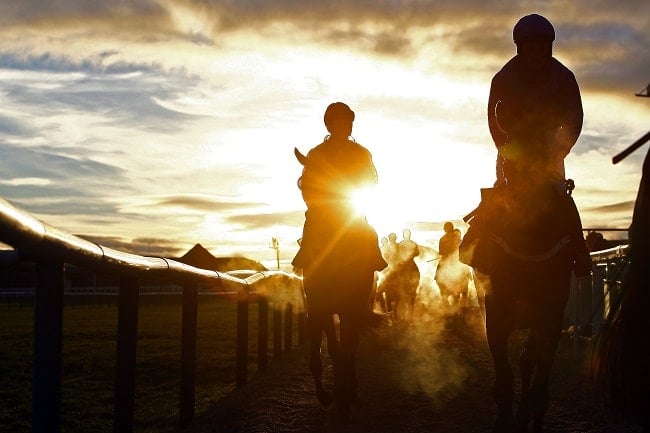
A common misconception about racehorse ownership is that it’s a niche market for the elite only, however with the emergence of small time syndicates, you can purchase shares in a racehorse for as little as £100, opening up an effective, split cost partnership, that all parties involved can benefit from. With around 8000 racehorse owners in Great Britain alone and horseracing the second most popular spectator sport in the whole of the UK, the sport is fast becoming accessible to everyone as well as very lucrative to those who can realise the potential of the opportunities presented. Here we discuss the different types of racehorse ownership.
Sole Ownership
This one is pretty self-explanatory, you and you alone are the sole owner of the horse. So, the initial cost of the horse, the horse’s well-being and up keep, along with transport costs and medication is based upon your shoulders (totalling at least £10,000). Contrary to this responsibility, comes reward, should the horse win any prize money, it’s yours alone. Naming of the horse and choice of colours worn is completely up to you; should you see this as an advertisement opportunity to recuperate some of the initial costs or you have a special name in mind, you have unwavering control within the guidelines. Furthermore, the fully complimentary owner’s badges and experiences that are presented when your horse is racing, for instance, private and exclusive hospitality events, rewarding sponsorship offers, free admission, private viewing and training areas as well as the chance to mingle with some high-profile owners.
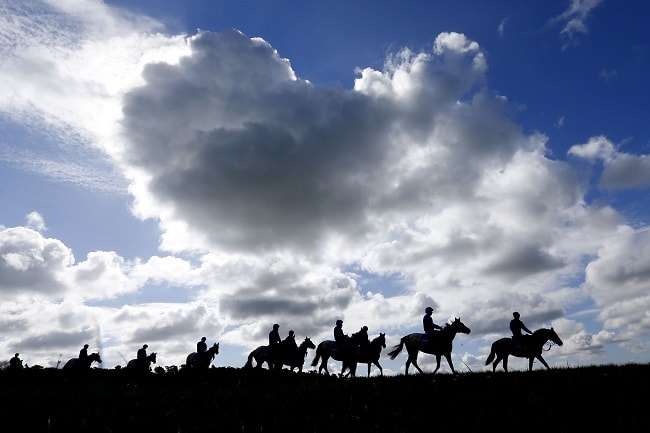
Joint Ownership (Half or Quarter shares)
A joint ownership is devised mainly by outside companies looking to match those who have similar budgets and requirements. It has a sort of dating website theory behind it - fill in a few forms of what horses you like, how much you’re willing to spend and what training plans you have for the horse and the website will do the rest. It’s a great stepping stone to build yourself up to a sole owner or perfect for those who have an idea of what the racehorse could develop into but are not willing to gamble all their money on a maybe horse.
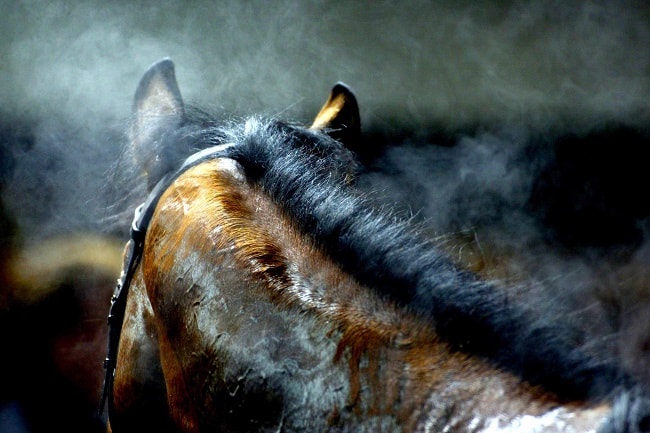
Racing Syndicates
Perfect for those starting off. A racing syndicate can consist of 4-20 separate owners all sharing the legal ownership of the horse consisting of the shares bought in a particular horse. Obviously, the main benefit is the split cost and enjoyment shared between separate parties, whilst still maintaining legal ownership of the horse. All the same benefits apply to you as a sole owner, including private hospitality events and exclusive viewing opportunities. Shares can vary from 1% to 25%, but all owners will be treated the same, with decisions made for the horse in a democratic manor in junction with the trainer and lifelong friendships established. It’s a great way to get involved in horse racing. With sales of some shares going for as little as £100 and success stories of investors syndicating a horse for £30,000 and selling the same horse 1 year later for £300,000 as it develops. Moreover, the opportunity to buy and sell shares allows for smart investors to make a small profit in a relatively small time-frame, considering the age that most horses are bought at compared what age they are sold at.
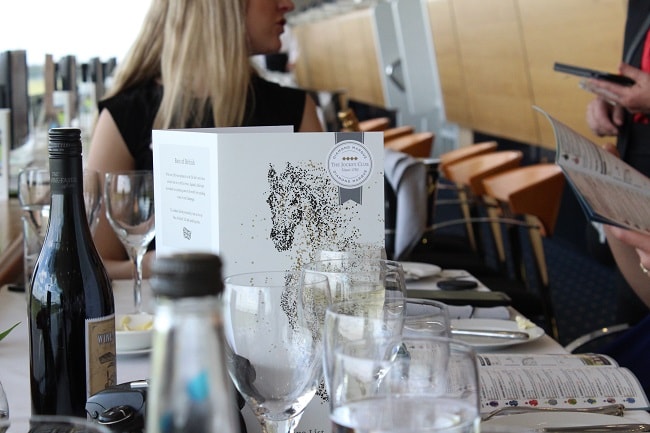
Company Ownership and Racing Club Leasing Opportunities
Company ownership of the horse allows the burden of the costs to be placed upon the company, which many use as a promotional tool for the business. Also, it allows for employees of the company to set up a small syndicate with the company, so employees can experience the full racehorse ownership experience with a share of less than 1%. Leasing is the chance to own a horse for a set period of time agreed by the Leaser and the Lessee. Granted you don’t technically own the horse, all the benefits provided including prize money is yours for the year, providing you pay the costs for that year. Once the agreed time period has expired, the horse returns back to its owner or an option to buy is provided. Typically a horse for lease is provided by breeders, who would like to keep them racing whilst the opportunity for them to do so is there, but in due course, keep them for breeding upon retirement (Considering the right genes can fetch £100,000 retirement isn’t so bad).
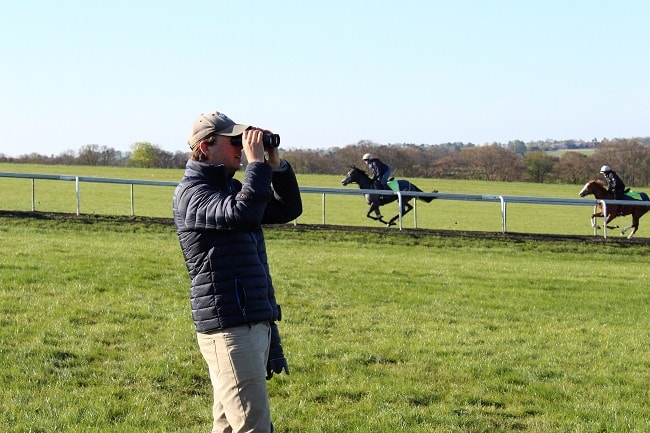
How to buy a horse
So, you’ve now pooled together or dipped into to your savings and accumulated enough money to buy yourself a horse - its time to hit the sales. If you’re going to purchase flat racing horses then yearlings (one-year olds) or Breeze-up sales for two-year olds in training are the way to go, as it allows time for development and growth into a potential superstar. Each year Europe’s major sales take place at Tattersalls, Newmarket. With thousands of horses to choose from, all individual with different bloodlines, pedigrees, form and background, a bloodstock agent is crucial to your success in buying if you’re not an experienced professional.
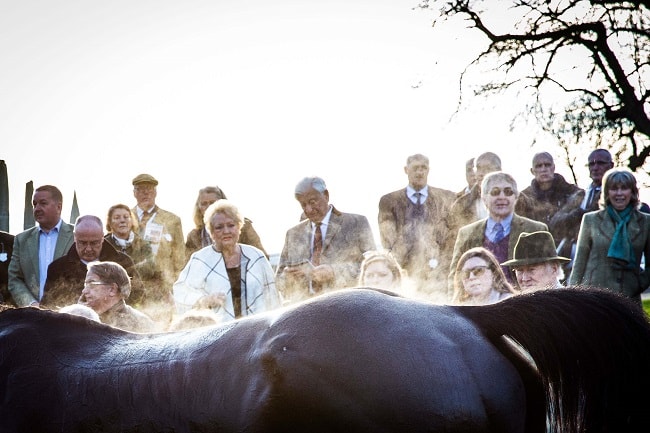
We were able to speak to one of horse racing’s leading bloodstock agents, Barry Lynch of Lynch Bloodstock who gave a small insight on what these people look for when buying a thoroughbred. “All bloodstock agents have a real passion and enthusiasm for what they do”. Coupled with their plethora of knowledge in form and pedigree, they dedicate their lives to finding that next big talent to emerge from the sales. Barry goes on to state “experience is essential” as it takes years of shadowing from professional bloodstock agents, to build up a credible enough reputation before clients will start to trust these agents with their money. When asked about what specific characteristics bloodstock agents look for, Barry replied: “Pedigree is the most important.” Like a big family tree, thoroughbred breeding histories are recorded. The offspring of Sire (father) and Dam (mother) with excellent racing pedigree will more likely develop into a successful racehorse due to genetics and will therefore fetch a higher asking price. “Ease of movement, as they will be raced over 1 Furlong (8th of a mile) and timed, obviously the quicker the time, the better the horse”. Then “physical appearance, how the horse looks whilst racing and if it is moving properly. So, we’ll look for balance as it means the horse has longevity to its racing career. How athletic it is, does the frame look good and is the horse in proportion with the rest of its body?” Finally, the “attitude it expresses, does it have a good heart? Is it well mannered? The calmer the horse the better it is to perform in racing situations and it won't use up too much energy.” However, like every aspect on horse racing, it’s a gamble. A horse going for £600,000 could turn out to be a flop compared to a horse that was bought for £1000 which could end up winning major tournaments.
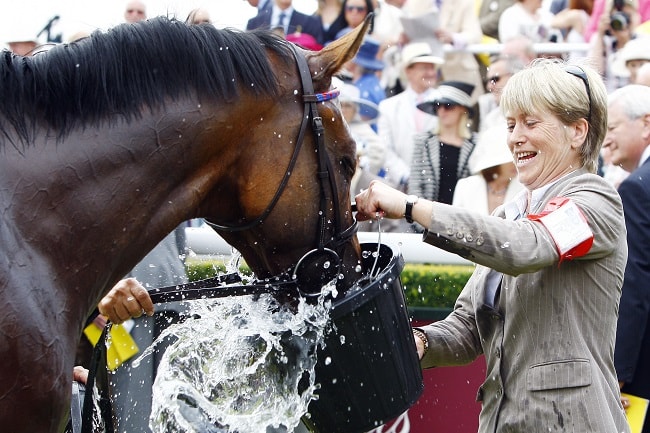
Trainer for your horse
A horse can only develop so much based on its genes alone. It’s a trainer’s job to ensure the horse reaches that next level of peak performance, with exercise periods, eating habits and rest times specific to each horse. Finding a trainer who can provide you with the highest chance of success is key. During our trip to Newmarket, we were given the opportunity to meet with racing’s rising star trainer Charlie Fellowes, who likes to refer to himself as an “Equine Phycologist” with a fantastic record of 25 winners from 137 runners at an 18% strike rate. 50% of his runners finishing in the first four places in 2016, and overall, 55 winners at a 15% strike rate in 3 seasons training. It was a real insight into the behind the scenes of horse racing, from morning gallops to how well each trainer knows their horse and every aspect of their dietary requirements along with future plans for the horse. Picking the right trainer could be based on your needs also. Say if you wanted a trainer that knows every aspect of your horse down to the number of eye lashes it has, then you’ll be looking for an ex jockey trainer. However, if you have a busy schedule and are only available for specific days to visit your horse then a well organised future planner is the person you need.
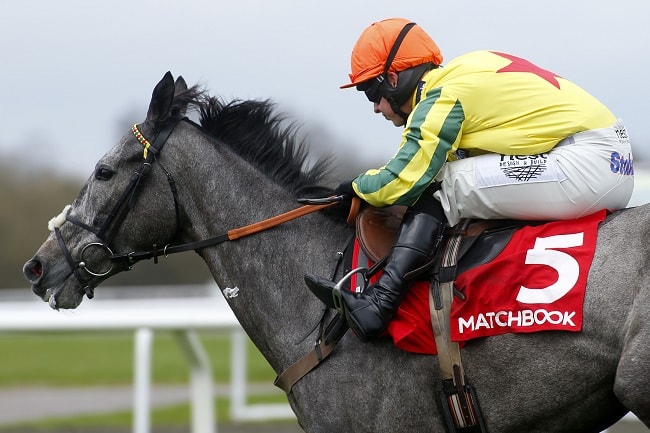
For those looking to get into racehorse ownership, Great British Racing has launched a new website, inthepaddock.co.uk, to showcase to potential buyers just how easy it can be to become a racehorse owner, for as little as £100 for a share in a racehorse. The website has been created to dispel the myth that racehorse ownership is only for the elite and to build on the fact that 73% of racehorse owners first conduct their research online, with visitors able to search for racing clubs and syndicates that are tailored to them and at a cost that they can afford.
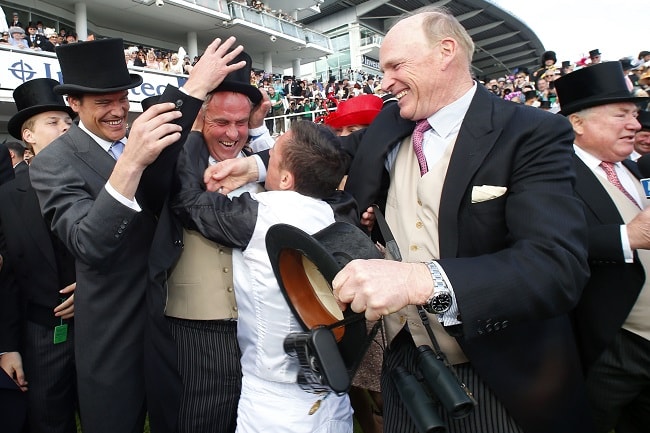
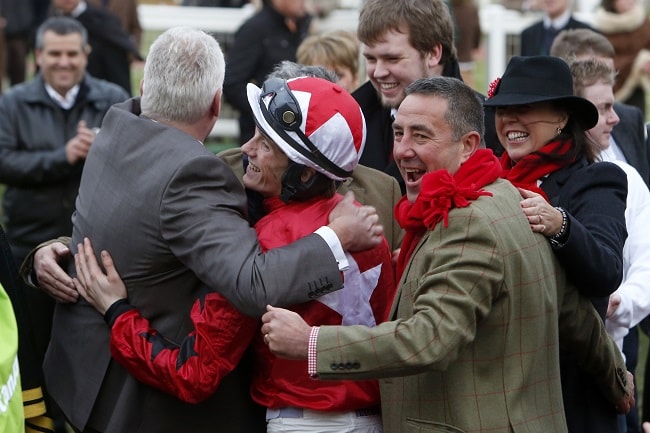
Trending
2
3
4
5
6
7
8
9
10









